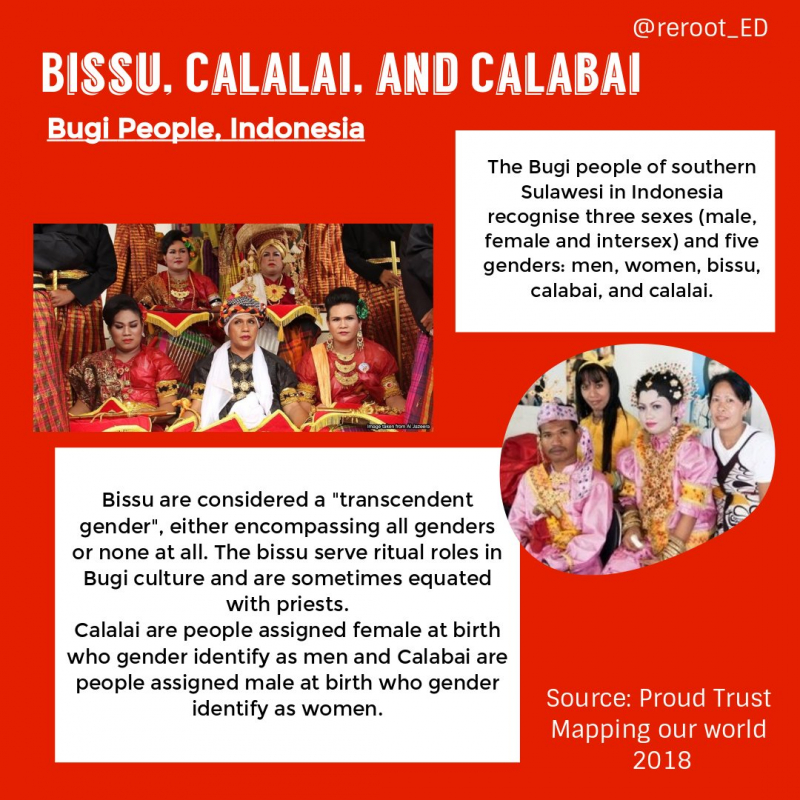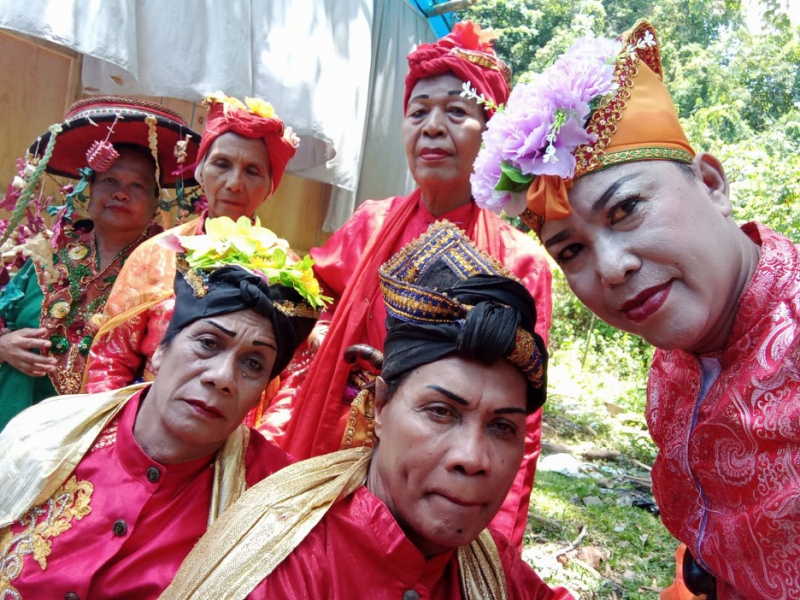Calalai, Calabai, and Bissu
The Bugis ethnic group, located in South Sulawesi, Indonesia, embraces a distinctive understanding of gender, recognizing three genders that transcend the conventional binary. One of these genders is known as "Calalai," referring to individuals who possess female sexual characteristics but choose to present themselves in ways that align with traditional masculinity. This often involves sporting short hair and adopting men's attire. Calalai individuals also assume social roles akin to those of men, granting them certain freedoms beyond the confines of traditional female roles.
Another gender within the Bugis culture is "Calabai." Calabai individuals possess male sexual characteristics but occupy roles traditionally held by women. It's important to note that while calabai fulfill roles associated with women, they do not personally identify as women. They actively reject the limitations imposed upon women and maintain their natural sexual attributes. In Bugis society, calabai often play central roles in overseeing weddings and managing various aspects of these ceremonies.
The third gender recognized by the Bugis ethnic group is "Bissu." Bissu individuals embody a synthesis of both masculinity and femininity, transcending the boundaries of other genders. Within Bugis beliefs, the role of bissu holds a spiritual significance that surpasses other gender identities. Bissu individuals often adorn themselves with flowers and carry sacred daggers, symbols of their encompassing identity. Their role involves conducting spiritual rituals, with the perception that they bridge the realms of the earthly and the divine.
The Bugis ethnic group of South Sulawesi, Indonesia, offers a distinctive perspective on gender that challenges the conventional binary understanding. Through the recognition of Calalai, Calabai, and Bissu genders, the Bugis culture highlights the complexity and diversity of human identities and their spiritual dimensions. This unique gender framework emphasizes the intricate interplay between societal roles, self-expression, and spiritual significance within the Bugis community.








